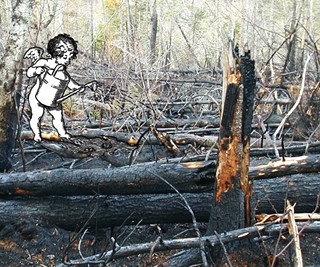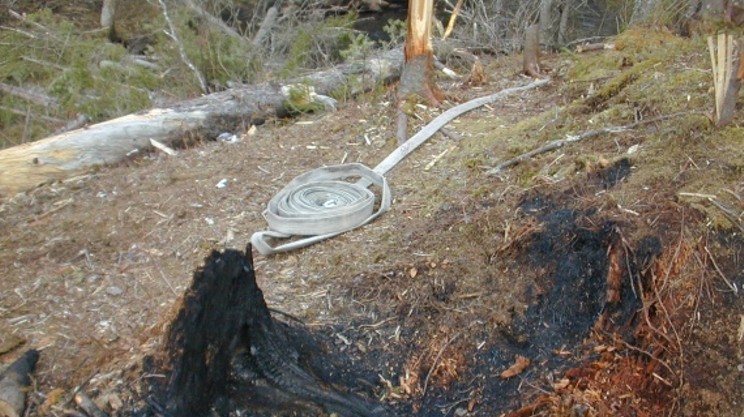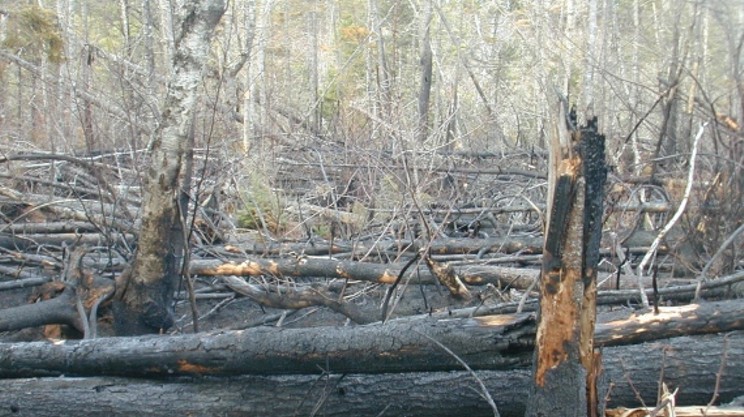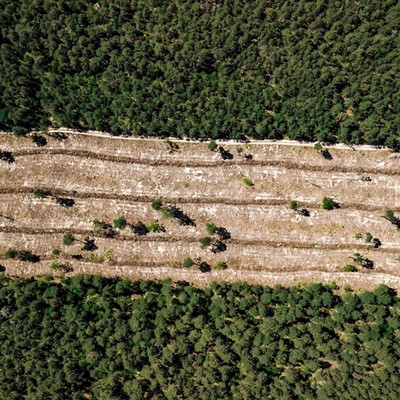Last year, a forest fire consumed nearly 2,000 hectares near Porters Lake. Last week, a fire burned 800 hectares near Spryfield, destroying eight homes. Stephen King looks at those fires and sees climate change.
Before retiring last year, King was manager of HRM's climate change department, and won wide acclaim. One of King's many accomplishments was the development of the Climate Change Risk Management Strategy; published in December 2007, that document is an exhaustive look at how Halifax will be impacted by climate change, and what the city can do about it.
King contacted me after I wrote a short blog post suggesting that warmer and drier April weather was a contributing factor in the Spryfield fire. (See thecoast.ca/bites.)
"You're right," says King. "Climate change doesn't cause these things, but it sure contributes---the risk is getting higher."
The CCRMS directly tells the city to "anticipate [an] increase [in] incidents and range of forest fires due to changes in temperature and precipitation bringing about extended hot dry conditions," and says the city planning department should prepare for that risk.
"It is important to not let these critical pieces of work wither on the vine until it's too late," says King. "The sustainability plans and strategies---clean air, land, water and energy---I developed for HRM were mostly from a pragmatic operational perspective. Each prioritizes the actions, who is responsible and performance measures."
King fears his work is being discarded and ignored, just as the realities of climate change hit home.
The evidence for climate change is irrefutable and abundant, says King, pointing at an increase in extended dry periods and the appearance of new pests, diseases and invasive species that are migrating further north. He says the city's lake monitoring program has discovered an alarming trend---the high bacteria counts that used to come in July are starting to appear in April. And summertime smog inversion layers, once a rare occurrence, are happening a few times every year.
"These things are happening," says King. "I don't give a shit what you call it, they're happening, and we've got to do some things---and one of the things we have the most control over is land use."
In terms of forest fires, planners can guide development into less risky areas and away from fire-prone areas, and can insist on setbacks between developments and woodland, and the use of fire-retarding building materials. In retrospect, the relatively new houses destroyed by fire last week seem almost designed for the catastrophe---they were on large wooded lots along Fortress and Aaron Roads, streets that wind back into the forest with no setbacks from the wildlands.
"You've got to keep banging away at that stuff. And with our development regulations have to be part of it."
HRM planning director Austin French did not return repeated phone calls and an email requesting an interview for this article. The silence doesn't surprise King.
"At the first stages of the regional plan, six or seven years ago, I remember that Planning, and Austin in particular, were very, very reluctant to talk about climate change," says King. "Their rationale, for what it's worth, was that the more we knew about something, it brought a greater [legal] risk upon us.
"The planners will argue, 'The building code we don't have a lot of jurisdiction over, it's provincial,'" continues King. "Well, that's kind of bull, because you can lobby hard, and if it's something that impacts human health and safety, then that does fall under municipal jurisdiction."
Another example of planning department indifference to climate change, says King, arose when HRM By Design, the downtown planning initiative now being debated at City Hall, was being designed. King was pushing for the inclusion of tough energy efficiency standards for new construction.
"Our building and planning people, behind the scenes, they were getting a little ticked---'It's not our jurisdiction, who's this environmental crusader, eco-terrorist?' And they really fought hard. They pushed back hard on it, and it didn't get in."
Still, King says it's not too late for the bureaucracy to adopt a "sustainability filter."



















